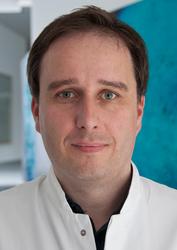
Prof. Dr. Oliver Gruber
Deptartment of
Psychiatry and Psychotherapy
UMG Göttingen, Von-Siebold-Str. 5
D-37075 Göttingen
Fon: +49 551 - 39-12298
E-Mail: ![]()

PD Dr. Peter Dechent
MR-Research in
Neurology and Psychiatry
UMG Göttingen, Robert-Koch-Str. 40
D-37077 Göttingen
Fon: +49 551 - 39-13140
E-Mail:
![]()

Prof. Dr. Elisabeth Binder
Translational Research in Psychiatry
MPI of Psychiatry, Kraepelinstr. 2-10
D-80804 Munich
Fon: +49 89 - 30622-586
Fax: +49 89 - 4400-55530
E-Mail:
![]()

Dr. Philipp Sämann
Core Unit imaging
MPI of Psychiatry, Kraepelinstr. 2-10
D-80804 Munich
Fon: +49 89 - 30622-413
E-Mail: ![]()
Translational neuroimaging studies on genotype-phenotype relationships in the longitudinal course of psychosis
The major aim of this ongoing interdisciplinary project is the targeted functional magnetic resonance imaging (fMRI)
investigation of pathomechanisms of schizophrenic and affective disorders in pathophysiologically relevant neurofunctional systems
with the ultimate goal to establish functional neuroimaging biomarkers that may be predictive for the longitudinal course and outcome
of these disorders. This includes both neuroimaging investigations of pathomechanisms in clinical samples and research into the
genetic underpinnings of the corresponding neurofunctional systems in a separate genomic imaging sample that is not confounded by
effects of age, education and performance levels, and brain pathologies. Such a combination of neurofunctional connectivity MRI studies
is an important nexus between clinical studies and corresponding neurobiological studies in animal models of schizophrenic and affective
disorders.
These investigations will provide further important insight into core pathophysiological processes and genetic factors
involved in schizophrenic and affective disorders and will foster both research into the pathogenesis of major psychoses and the
development of innovative therapeutic strategies for individual patients.
